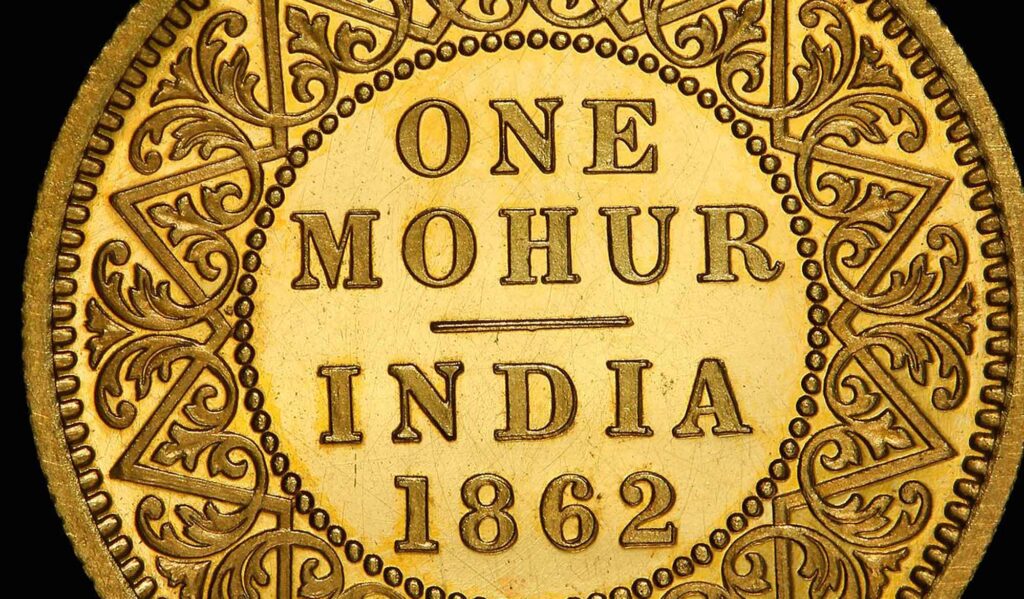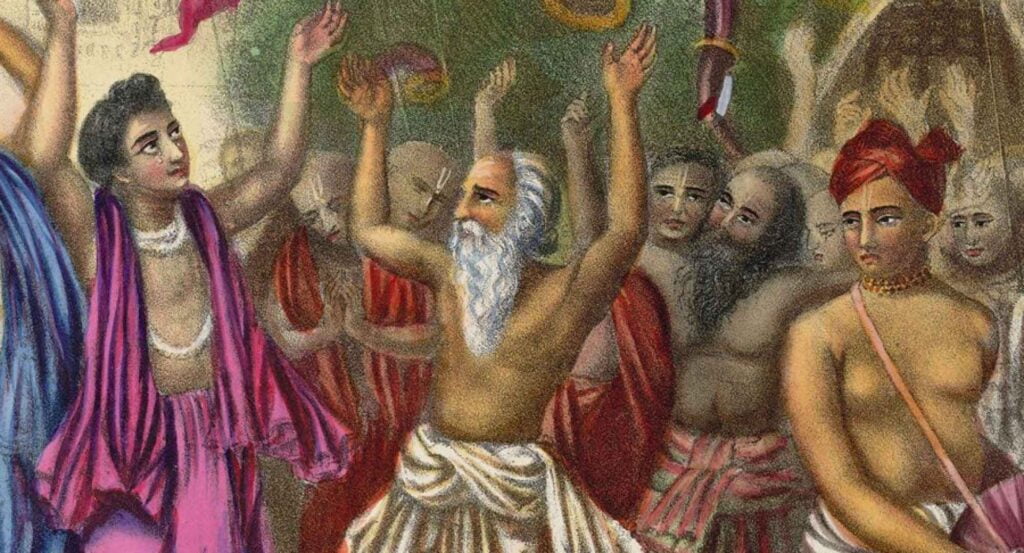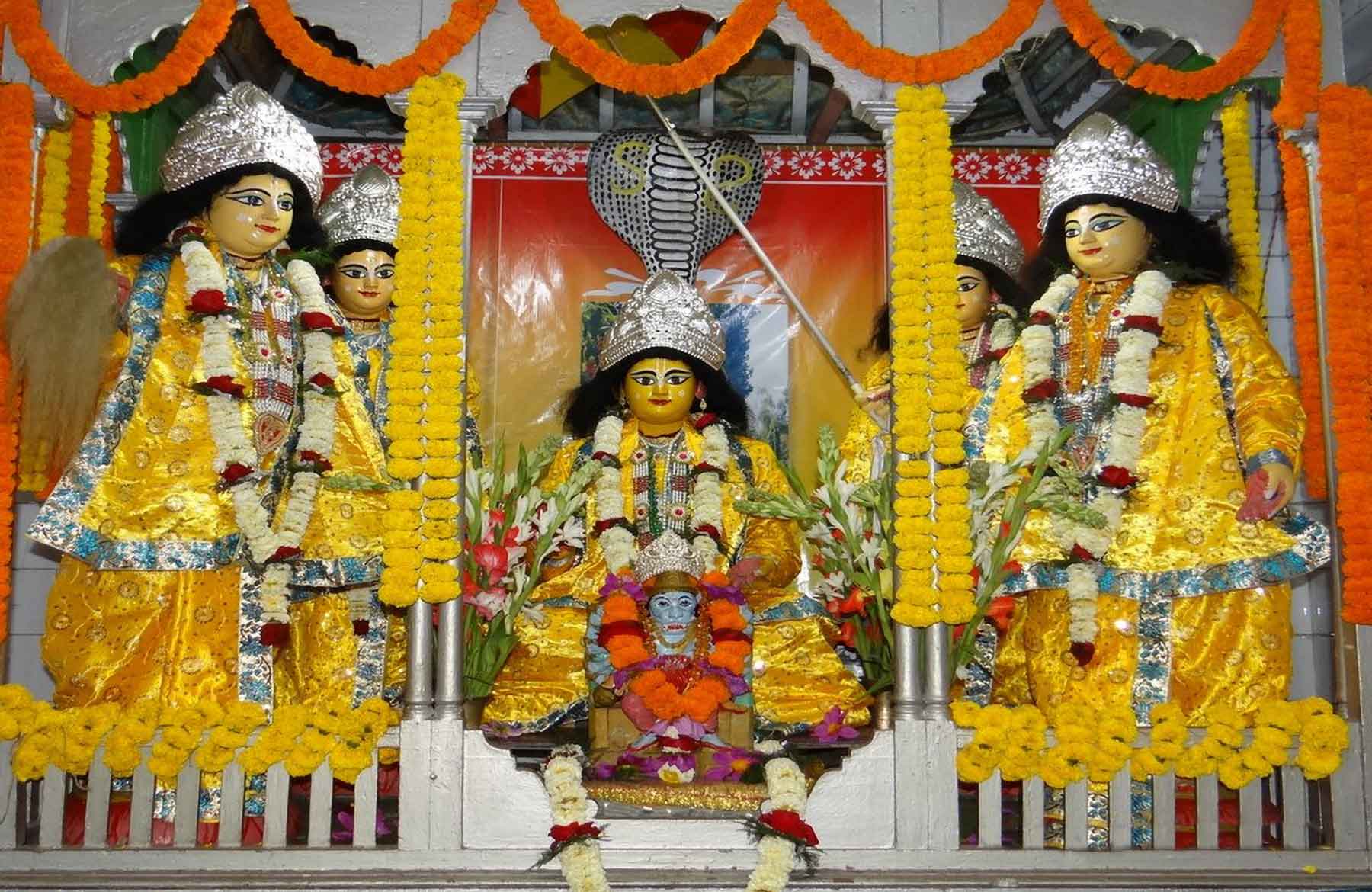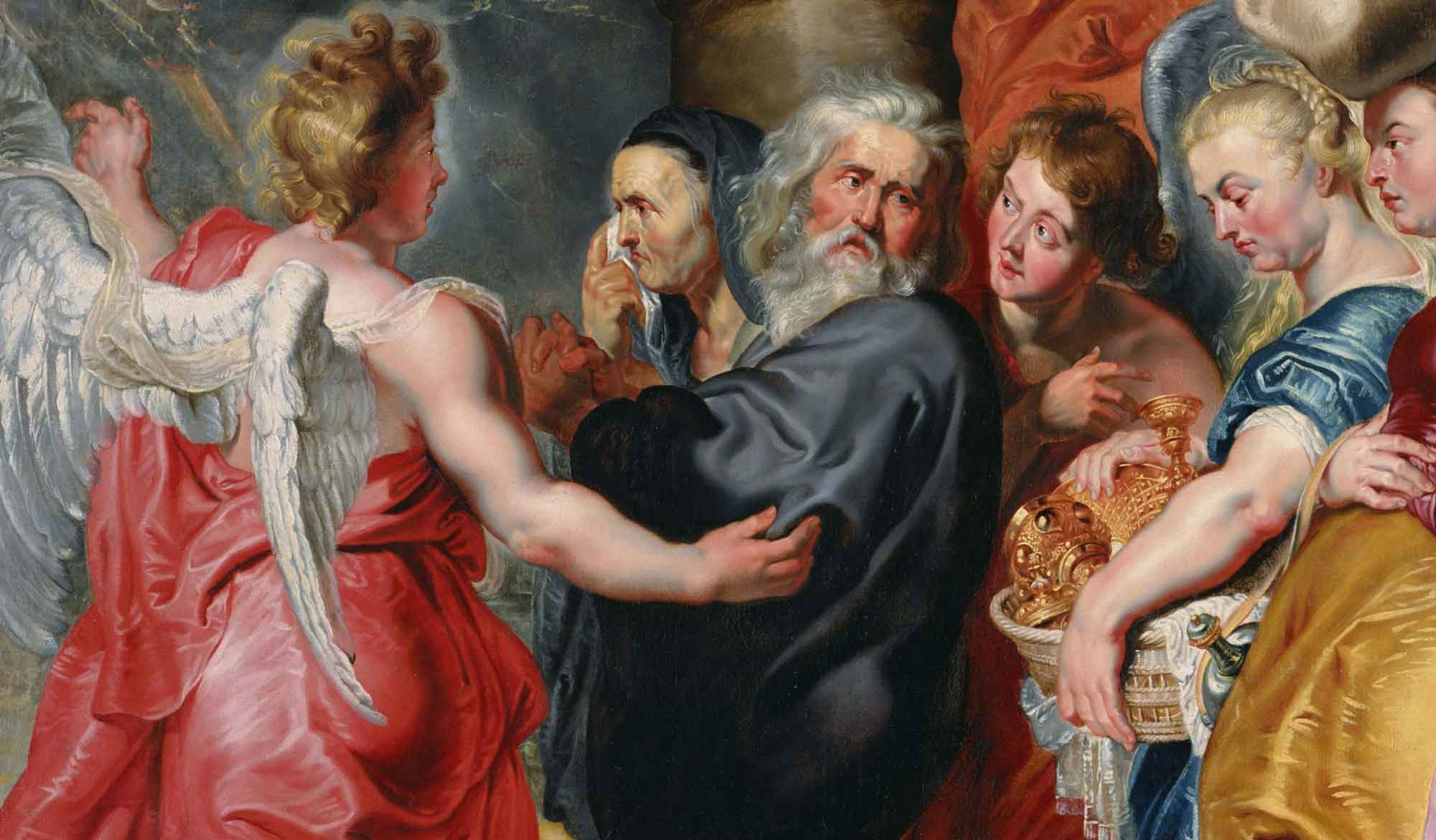Overview
We take initiation, chant the Holy Name, follow Ekādaśī, worship the Deity, go on pilgrimage to holy places - but we still feel nothing! Why? In this important article, 'Bhaktira Prati Aparādha (Offences Against Bhakti)' by Bhaktivinoda Ṭhākura, first published in Sajjana Toṣaṇī, Vol. 8. Issue 10 in 1896, the Ṭhākura explains clearly where we are going wrong.
(translated by Swami B.V. Giri)
It is indeed an unusual thing. We engage in bhakti in various ways. We receive a mantra from a brāhmaṇa guru who is in a sampradāya. Each day we place twelve tilakas on our body and engage in arcana of Śrī Kṛṣṇa. We observe the day of Ekādaśi. To the best of our ability, we remember the Name (nāma-smaraṇa). We take darśana of Śrī Vṛndāvana etc. But the unfortunate thing is that we do not endeavour to avoid offences to Bhakti Devī.
Śrīman Mahāprabhu has instructed the devotees about the symptoms of offences against Bhakti Devī by targeting Mukunda. Thus, Śrī Caitanya-bhāgavata says:
kṣaṇe dante tṛṇa laya, kṣaṇe jāṭhi māre
o ‘khaḍa’-’jāṭhiyā beṭā nā dekhibe more
(“Sometimes he takes a straw in his teeth and sometimes he beats Me with a stick. This fellow who holds a straw and a stick cannot see Me.” – Caitanya-bhāgavata, Madhya-khaṇḍa 10.185)
prabhu bale, – o beṭā yakhana yathā yāya
sei mata kathā kahi’ tathāi miśāya
vāśiṣṭha paḍaye yabe advaitera saṅge
bhakti-yoge nāce gāya tṛṇa kari’ dante
anya sampradāye giyā yakhana sāmbhāya
nāhi māne bhakti, jāṭhi māraye sadāya
(“The Lord said – ‘Wherever this person goes, he mixes freely with the people there and speaks with them about their opinions. He reads the Yoga-vāśiṣṭha in the association of Advaitins. And when he is with bhakti-yogīs, he sings and dances and places a straw between his teeth. When he mixes with those from another sampradāya [the māyāvādis], he does not accept bhakti and constantly beats Me with his stick!” – Caitanya-bhāgavata, Madhya-khaṇḍa 10.188–190)
bhakti-sthāne uhāra haila aparādha
eteke uhāra haila daraśana-vādha
(“Thus he has made an offence to the feet of Bhakti, therefore he is banned from seeing Me.”- Caitanya-bhāgavata, Madhya-khaṇḍa 10.192)
Śrī Mukunda Datta is an intimate associate of Bhagavān. Therefore these words spoken by the Lord in relation to him are mysterious. Yet the heart of Mahāprabhu is extremely deep. There is an instruction for us in these words. The instruction is this – simply accepting initiation and engaging in the limbs of bhakti does not give satisfaction to Kṛṣṇa. The Lord can only attain satisfaction with ananya-śraddhā (faith without deviation) in ananya-bhakti (bhakti without deviation). Anyone whose heart this type of śraddhā appears in has a firm disposition towards śuddha-bhakti. He does not go or reside at a place where there are no discussions on śuddha-bhakti. The nature of a pure devotee is to be simple, determined and one-pointed. He never consents to deliver talks that are opposed to śuddha-bhakti just for appeasing the masses. Pure devotees are always nirāpekṣa (without any mundane motivations).
There are many people nowadays who have no fear of committing these types of offences. Upon seeing a devotee, tears come to their eyes and their hairs stand on end, and while discussing ‘kathā’ (talks about the Lord), they suddenly go into a particular state of ecstasy. They may even agree to spiritual beliefs while attending spiritual meetings. However, once again, they become overwhelmed with mundane sense-objects and exhibit insane behaviour in trying to attain those things. O readers! What is the determination of all these types of people? Our opinion is this – simply for the sake of gaining some pratiṣṭhā (recognition and fame), they display symptoms of devotional bhāva in front of the devotees.
Sometimes it is greed for pratiṣṭhā, and sometimes it is greed for other mundane things, and to attain them they behave in various ways. Sadly, they teach this type of conduct to the world, and not only do they make offences against śuddha–bhakti, but they also create a means for the total destruction of all the jīvas of this world.
O readers! Come on – let us be careful and act in such a way that we never make an offence against Bhakti Devī. Firstly, let us become nirāpekṣa by worshipping Bhakti – this should be our vow. We will not speak nor do anything opposed to Bhakti in order to please some particular party. In all activities we will remain simple and straightforward. We will remain fixed within our heart, and not allow our conduct to be different. We will not make any endeavour to attain pratiṣṭhā by making a show of artificial symptoms to those who are actually opposed to bhakti. We will only favour śuddha-bhakti. We will never support any other type of siddhānta. Let our hearts and behaviour be the same!













